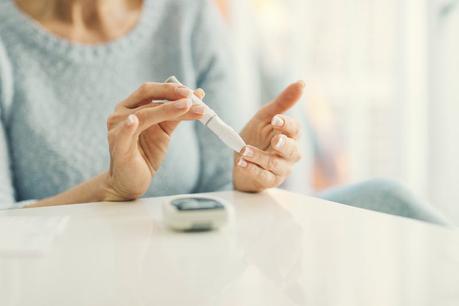
Once again, research has demonstrated that low carb nutrition is an effective therapy for type two diabetes.
Clinical trials have shown that in people with type 2 diabetes who are randomly assigned to follow a low-carb, low-fat, or standard diet, low carb has consistently been proven more effective for improving blood sugar and health markers.
In 2019, Virta Health published its two-year non-randomized clinical trial data showing that people with type 2 diabetes who chose to eat low carb and receive nutrition coaching achieved better health outcomes than those who selected standard diabetes management with their doctor.
The same year, South African researchers published a study demonstrating excellent blood sugar control and other health benefits in people with type 2 diabetes who'd already followed a low-carb way of eating on their own for at least six months.
Now another "real world" study is reporting that people with type 2 diabetes who chose to follow a low-carb, high-fat (LCHF) diet experienced exceptional health improvements compared to those who chose to receive standard diabetes care:
BMJ Open Diabetes Research & Care 2020: Effects of the low carbohydrate, high fat diet on glycemic control and body weight in patients with type 2 diabetes: experience from a community-based cohortThis was a community-based study comparing two groups of patients with type 2 diabetes. In the first group, 49 patients chose to follow a low-carb diet for at least three months and attend four follow-up visits with a weight loss specialist they'd been referred to by their endocrinologist. In the other group, 75 patients chose to receive usual care at their endocrinologist's office for at least three months, which included four follow-up visits.
Patients who selected low carb were instructed to eat no more than 20 grams of net carbs per day and weren't advised to deliberately restrict calories. The list of permitted foods was typical keto fare: meat, fish, eggs, nuts, seeds, non-starchy vegetables, high-fat dairy, and natural fats and oils. The patients were asked to keep food logs, which were reviewed at each follow-up visit.
Of note, in this study, 49% of those who followed low carb but only 2% of those who received usual care chose to take the weight-loss drug phentermine. This likely had to do with the different physicians seen by each group. The medication use may have contributed to the large average weight loss in the low-carb group and presents a confounding variable for the results.
Throughout the study, patients who'd chosen low carb had their insulin and other diabetes medications adjusted by their endocrinologist in order to prevent hypoglycemia.
Although the two groups started out with very similar diabetes health markers and weights, the low-carb group had significantly greater improvements at each follow-up visit.
By the fourth visit, the differences between the two groups remained striking:
- The low-carb group had an average HbA1C of 6.67%, compared with 7.8% in the usual care group.
- Average fasting blood sugar dropped by 43.5 mg/dL in the low-carb group vs. 8.4 mg/dL in the usual care group.
- The low-carb group lost an average of 27 pounds (12.3 kg), while the group who received usual care gained about 1 pound (0.5 kg).
- 100% of patients in the low-carb group who took insulin were able to discontinue or reduce their dosage, compared with 23% in the usual care group.
- Similarly, 100% of patients in the low-carb group who took sulfonylurea medication were able to discontinue it, compared with 12% of participants in the usual care group.
Using statistical analysis, the researchers felt the phentermine drug did not play a role in the impressive HbA1c and fasting blood sugar reductions seen in the low-carb eaters, attributing these improvements to the diet alone. However, we have to admit the results would have been much "cleaner" and more impressive without the use of the drug. Therefore, we do need to interpret the results with some caution.
Unlike a randomized controlled trial in which people are assigned to follow a certain diet whether they want to or not, this "real-world," community-based study demonstrates that people who make their own choice to eat low carb can dramatically improve their health.
The researchers concluded that "For motivated patients, the LCHF diet should be considered as a viable treatment option for type 2 diabetes."
At Diet Doctor, we feel that all people with diabetes should be presented with low carb as a safe and effective option - ideally, the first option. Once they learn about the diet, start following it, and see the results, chances are good that they'll be motivated to stick with this way of eating for life.
Start your FREE 30-day trial!
Get delicious recipes, amazing meal plans, video courses, health guides, and weight loss advice from doctors, dietitians, and other experts.

